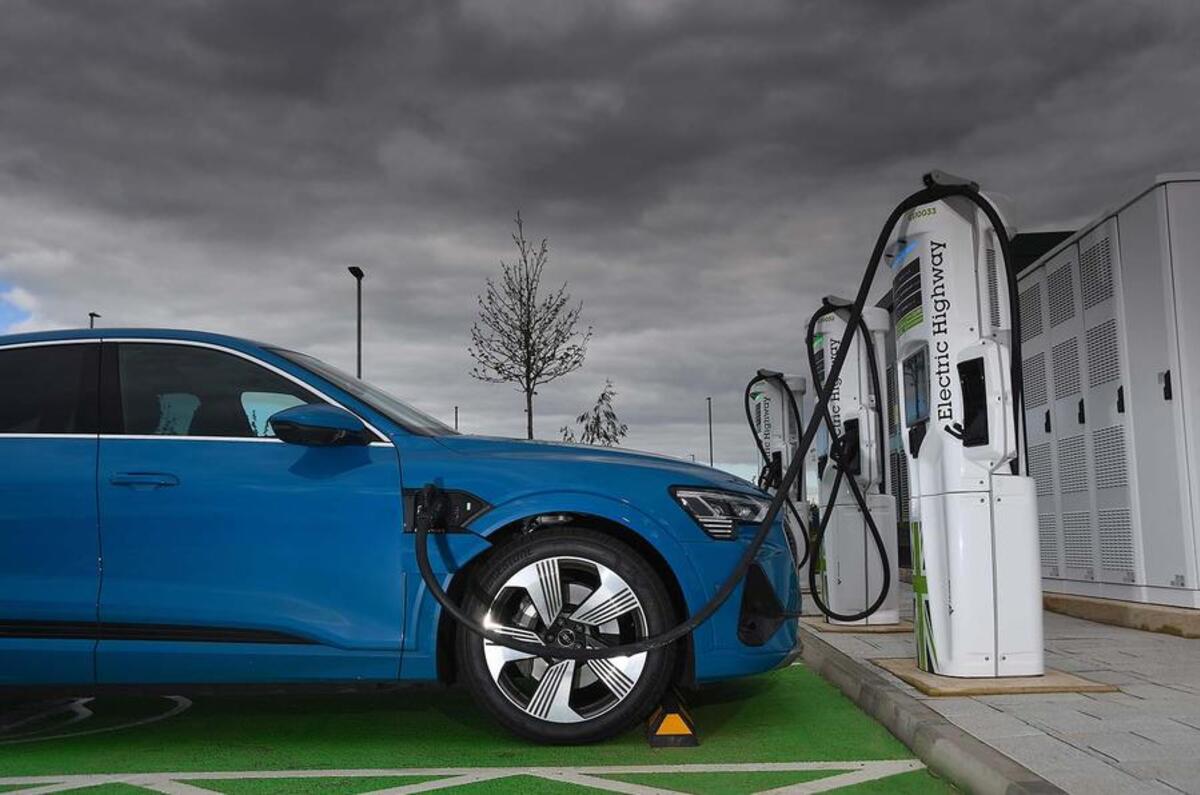Car makers have accused the UK government of “sleepwalking into an EV crisis” after chancellor Jeremy Hunt snubbed calls from across the industry to introduce EV incentives.
During his hour-long spring budget statement, Hunt announced nothing to either incentivise buying or reduce the cost of owning an EV as the UK gears up to ban new ICE car sales in 2035.
This lack of EV incentives has been blasted by Stellantis-owned brands Fiat and Vauxhall, the latter a key player in the UK automotive manufacturing sector.
Vauxhall managing director James Taylor said the budget "has not delivered the acceleration needed to stop the UK’s transition to electric vehicles from stalling".
Calls for buying incentives have become louder since the government's introduction of the ZEV mandate, which legislates that car manufacturers must hit an EV sale target - 22% of their total sales this year.
Car makers argue that private buyers should get the same incentives as fleet buyers.
Taylor said: "Whilst there are strong incentives for company car drivers to make the switch to electric, including for those choosing luxury vehicles, the private buyer who wants a more attainable small or family car receives nothing.
"If we are to meet the rightly ambitious targets laid out in the ZEV mandate, then there needs to be incentives for private car buyers to make the switch to electric, as there are in the majority of European nations."
Damien Dally, UK boss of Fiat (which currently offers its own £3000 grant on EV purchases) was one of the most vocal critics of the budget.
“It’s hugely disappointing that the chancellor has failed to reinstate financial incentives for electric vehicle buyers in today’s budget,” Dally said.
“The government has set the direction of travel by enforcing the zero-emission vehicle mandate and ne-zero target but is doing nothing to incentivise retail customers to drive electric vehicles.
"The demand for electric vehicles is waning and we're sleepwalking into an electric vehicle crisis. The government is also potentially putting its net-zero target at risk.
“Without any government financial incentive, there’s no reason for the consumer to make the switch.
“Unfortunately, it seems the switch to electric isn’t a priority for the government.”
Mike Hawes, CEO of the Society of Motor Manufacturers and Traders (SMMT), said: “Government has been keen to assure the UK automotive industry’s competitiveness, with support for EV development and manufacturing, including £2.1 billion in autumn’s Advanced Manufacturing Plan, but there is little to help consumer demand.
“Today’s budget is therefore a missed opportunity to deliver fairer tax for a fair transition. Reducing VAT on new EVs, revising vehicle taxation to promote rather than punish going electric and an end to the VAT ‘pavement penalty’ on public charging would have energised the market.








Join the debate
Add your comment
Looks like the UK will end up with very low car sales and the manufacturers pulling out as they can't make any money.
So the balance of payments will hit an enormous problem as all cars are imported and interest rates will rocket again.
To use British taxpayers money to help people buy foreign made EVs (which helps foreign workers pay taxes to their government, not ours) would be insane. Our tax money to help a foreign country succeed.
However to make this EV grant applicable to only British produced cars (and their batteries), that would make good financial sense and its the sort of up-side I hoped to see from the mainly disastrous Brexit situation.
We already do that by giving tens of billions to manufacturers not to leave.
Creating thousands of jobs in your country.
"Sleepwalking into an EV crisis"?!?!?!?! That sounds HORRIBLE! Everybody stop buying new cars and save your money! Disaster ahead!